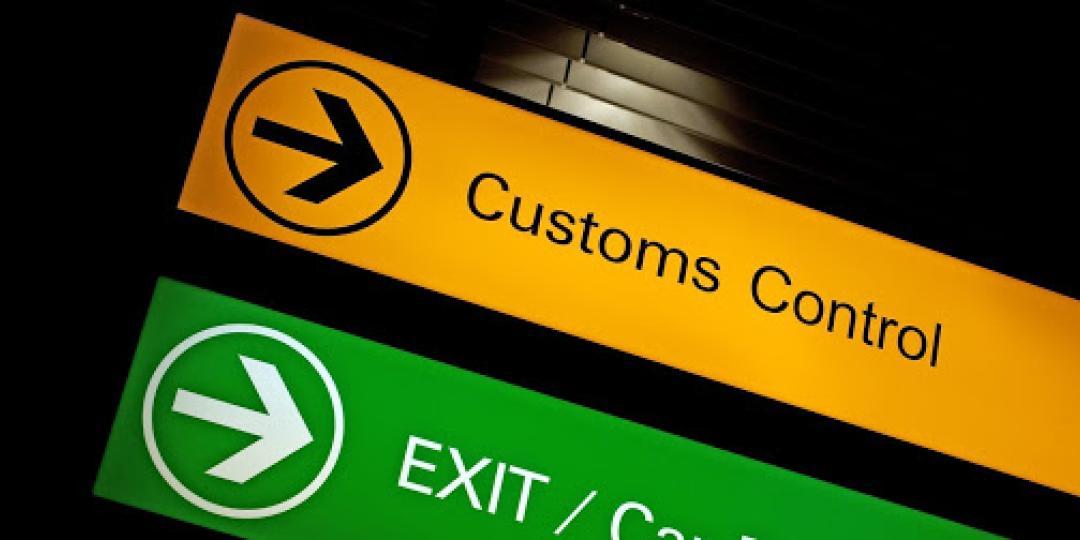International Trade, the exchange of capital, goods and services between the borders of two or more nations is crucial to the growth of global GDP as well as to the sustenance of millions of livelihoods across the world, all of which are either directly or indirectly employed as a result of this activity. Our modern world, as we know it, would be significantly less prosperous without the ability for nations to trade with each other. Customs control therefore needs to evolve to be smarter and more efficient to ensure enhanced international trade facilitation.
Trade facilitation is one of the key factors for economic development and is closely tied into national agendas on social well-being, poverty reduction and economic development of countries and their citizens. Trade facilitation, in the WCO context, means the avoidance of unnecessary trade restrictiveness. This can be achieved by applying modern techniques and technologies while improving the quality of controls in an internationally harmonised manner.
In international trade Customs plays a critical role - not only in providing expedited clearing processes but also in implementing effective controls that secure revenue, ensure compliance with national laws, and ensure security and protection of society. The efficiency and effectiveness of Customs procedures has a significant influence on the economic competitiveness of nations and in the growth of international trade and the development of the global marketplace.
Trade facilitation is the simplification, harmonisation, standardisation and modernisation of trade procedures. It seeks to reduce trade transaction costs at the interface between business and government and is an agenda item within many customs-related activities. These include WTO trade round negotiations, supply chain security initiatives, development and capacity-building programmes, as well as many customs modernisation programmes. However, the implementation of trade-facilitation principles is fraught with obstacles. Obstacles identified in this paper include conflicting interests, institutional limitations, and lack of knowledge. Policy makers and project managers stand to gain from more substantiated research aimed at deepening their understanding of cross-border operations, its inherent dynamics, stakeholder interests and institutional limitations. Currently such knowledge is seldom found in one place.
Trade facilitation and Customs control need to coexist to ensure economic prosperity. There should not be an overly zealous level of bureaucracy to the extent that it would deter importers and exporters from trading internationally. One of the biggest drawcards of foreign direct investment (FDI) to a developing country is the affordability of labour as well as accessibility to well-developed and easily accessible ports of entry and exit. Equally as important in sustaining and encouraging continued FDI is an efficient customs administration that facilitates trade without any overly strict barriers that would otherwise make trade challenging. Employment creation is as a result of, for example, manufacturing plants that are set up in our country, where goods that are manufactured locally qualify for industrial rebates e.g. the Samsung SSAP plant in La Mercy which imports components for the manufacture of television sets. This business unit, one of many similar that exist, has created employment both directly and indirectly for a multitude of stakeholders both onsite and offsite; the employment scope ranges from logistics controllers and assembly managers on site to transport and freight forwarding employees offsite.
I agree that Customs control is imperative, but there is a smarter way to process the implementation of control mechanisms. Take for example customs inspections of containerised cargo, which I believe can be handled more efficiently in respect of reporting time frames, which would prevent delays and exorbitant charges from third-party stakeholders. They could be handled completely differently whereby the Act makes provision for the shipping line equipment to be returned earlier by arranging for inspections to be done at the importer’s premises as a standard rule, with an increased capacity of officers available to conduct inspections. Yes, capacity needs to be created in order to achieve the aforementioned, especially with the traffic of containers that we receive – but is capacity building that much of a challenge? I would think not; we need to develop the skills of unemployed youth and invest in improving our attractiveness as a successful customs administration as opposed to experiencing delays in reporting that could at times lead to compliant cargo waiting at depots with storage and demurrage bills damaging the bottom line of importers and potentially deterring manufacturing plants from setting up shop in our country.
Taking a closer look at our trade balance trade over the past three months, we can be optimistic that this growth will continue. In order to continue the growing upward trend of our positive trade surplus figures, we need to ensure enhanced trade facilitation and hence we can ill afford delays due to lack of capacity - especially on customs stop shipments. These figures can grow even further to exponential levels if we correctly apply the suggestions to employ proactive customs control measures as opposed to reactive measures that create uncertainty and lead to exorbitant costs for stakeholders.

We need to invest in pre-clearance audits as opposed to post-clearance audits, thereby eliminating the possibility of illicit trade activities filtering through the cracks. Before a shipment arrives, a manifest at POL must be made available by the carrier to customs administrations in order to cross-reference declarations submitted by C&F agents on behalf of importers. In addition, proof of payment for imported goods and/or contractual agreements must be submitted to customs by the importer when the declaration is made. South African banks need to integrate their systems with the respective customs administrations to achieve verification of the payment received to counter under-valuation of goods. Inspections can be done at the importer’s premises to verify the contents declared, with the container seal being broken in the presence of Sars C&E in the case of seafreight. Ground teams must be present at airports to verify goods upon arrival, with notifications to the importer being made in real time by employing the use of 4IR Technology which, although expensive to source, especially within the ESA region, is actually much more affordable when considering the long-term cost saving of millions of dollars that are wasted through corruption and illicit trade.
Risk profiling must also be done on a continuous basis, with quarterly customs client licence renewals undertaken to ensure continued and consistent compliance with legislative provisions, thus ensuring no margin for complacency. Customs administrations should therefore also cross-reference with shipping line manifests, and using data analytics and big data computing deduce very accurately high-risk containers in terms of possible contraventions. Customs compliance knowledge must be made available by the respective customs administrations to all stakeholders, including importers, exporters and clearing agents. Economic prosperity can only be achieved through free, fair and transparent trade provisions.










